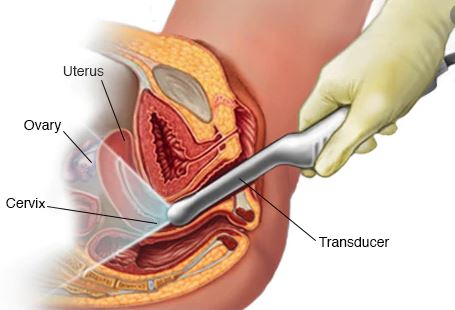Ultrasound Scan in Turkey
Find the best clinics for Ultrasound Scan in Turkey
With Medijump you can browse 6 facilities offering Ultrasound Scan procedures in Turkey. The cheapest price available is $86 in Istanbul. And for the cheapest price globally, prices start from $11 in Poland.
Ultrasound Scan in Istanbul
Price: $ 86
Poland offers the best prices Worldwide
Price: $ 11
From 2 verified reviews
Lillie Poole, 30 July 2023
My experience at Medical Park Ankara was fantastic. The doctor performed my rhinoplasty with exceptional skill, and the results were beyond my expectations. From the initial consultation to the post-operative care, the entire process was handled professionally. I'm very pleased with the results and grateful for the attentive and expert care I received. Thank you!
From 2 verified reviews
Orville Stone, 21 December 2023
I had a great experience at this hospital. The facilities were clean and up-to-date, and the medical team was professional. They took the time to answer all my questions and put my mind at ease. I felt confident in the care I received and appreciated the attention to detail. Highly recommend!
From 2 verified reviews
Autumn Hanna, 02 January 2024
The procedure was quick and efficient. The staff was friendly, and I got my results fast. Overall, a pleasant experience!
From 2 verified reviews
Rolando Glenn, 11 February 2024
I recently had a tooth filling, and it was a simple procedure. The dentist was gentle, and I felt at ease throughout. A quick procedure with no discomfort. Very pleased with the results.
From 2 verified reviews
Kim Jones, 10 April 2023
Great hospital, they have professional translators, doctors, and nurses. They were on standby if I needed help but there was no such need. Everything is perfect for me.
From 127 verified reviews
Fatma Özer, 20 September 2020
Girişte sizi muhteşem bir enerjiyle karşılayan çalışanların olduğu ve bu enerjinin tüm katlara yayıldığı bir hastane. Özellikle karşılamada görevli hanımefendiye ayrıca teşekkür ederim 🙏
WHY US?
At Medijump, we're making medical easy. You can search, compare, discuss, and book your medical all in one place. We open the door to the best medical providers worldwide, saving you time and energy along the way, and it's all for FREE, no hidden fees, and no price markups guaranteed. So what are you waiting for?

Free

Best Price

Widest Selection

Risk-Free
What you need to know about Ultrasound Scan in Turkey

An ultrasound scan, also known as sonography, is a medical test that uses high-frequency sound waves to produce images of structures inside of your body. These images can provide valuable information to diagnose and treat numerous diseases and conditions. The image produced is called a sonogram.
Ultrasound scans are commonly associated with pregnancy as they are often used to view the uterus and ovaries during pregnancy, providing an expectant mother with the first view of her unborn child. The scans can also be used to monitor the health of the developing baby. However, an ultrasound scan can be used for many reasons, including:
-
Assess blood flow
-
Diagnose problems with muscles, soft tissues, and blood vessels
-
Diagnose gallbladder disease
-
Check your thyroid gland, liver, kidneys, and pancreas
-
Examine a breast lump
-
Evaluate joint inflammation
-
Detect prostate and genital problems
-
Examine metabolic bone disease
-
Investigate a tennis elbow, frozen shoulder, or carpal tunnel syndrome
-
Guide surgeons’ movements during certain medical procedures, such as tumor treatment or biopsy.
What does a Ultrasound Scan Procedure Involve?
There are two main types of ultrasound scans:
External ultrasound scan
During an external ultrasound scan, a trained technician (sonographer) apply a lubricating gel onto your skin over the area being examined.
The sonographer than places a small, hand-held device called a transducer against the area being studied. The transducer may be moved as needed to capture the images. The transduces works by sending sound waves into your body, collecting the ones that echo, and sending them to a computer that creates the images. These images can be interpreted by your doctor. Humans cannot hear the sound waves as they are too high of a pitch for us to hear.
Depending on the area being examined, you may be asked to change positions to let the sonographer get better access. You should not feel any discomfort or pain during the procedure.
Internal ultrasound scan
In some cases, an ultrasound scan may be done inside your body. This type of ultrasound is normally used to evaluate the internal reproductive organs or urinary system. During an external ultrasound scan, the transducer is attached to a probe that is inserted into a natural opening in your body. Here are some examples of internal ultrasound:
-
Transvaginal ultrasound – the sonographer uses a special transducer and gently inserts it into the vagina to get a quick look at the ovaries and uterus.
-
Transrectal ultrasound – a special transducer is placed into the rectum to create images of the prostate.
-
Transesophageal echocardiogram – the sonographer inserts a transducer into your esophagus to obtain heart images. This procedure is usually under local anesthesia and sedative.
When your ultrasound scan is complete, a radiologist will analyze the images and send a report to your doctor. Then, your doctor will share the result with you.
How Long Should I Stay in Turkey for a Ultrasound Scan Procedure?
You should be able to leave the hospital soon after your ultrasound finishes. Since the images of your scan will need to be analyzed, you may need to stay in Turkey for at least 3 to 7 days, or until the results are ready. When the results are ready, you will have to attend a follow-up appointment to discuss them with your doctor.
What's the Recovery Time for Ultrasound Scan Procedures in Turkey?
You can return to your normal activities, including work, immediately after an ultrasound scan. However, if you have an internal ultrasound scan that involves the use of anesthetic and sedative, you should wait about 24 hours until you are allowed to go back to your normal activities.
What sort of Aftercare is Required for Ultrasound Scan Procedures in Turkey?
There is generally no special aftercare following an ultrasound scan. You can drive, eat, and drink as usual straightaway. If the ultrasound scan involves anesthetic and sedative, you should not drive, operate machinery, or drink alcohol for a day.
What's the Success Rate of Ultrasound Scan Procedures in Turkey?
The success and accuracy rate of an ultrasound scan depends on what it is used for. It should be 100% accurate in detecting a fetal heartbeat. However, it may not be always accurate for other uses.
Ultrasound scan is very safe and there are no know risks from the sound waves used in the procedure. Unlike some other scans, such as CT scans, ultrasound scans do not involve exposure to radiation.
If you are undergoing an internal scan and are allergic to latex, make sure to let the sonographer know so they can use a latex-free probe cover.
Are there Alternatives to Ultrasound Scan Procedures in Turkey?
The alternatives to ultrasound scan depend on the reason why you need the procedure. For instance, if you want to confirm your pregnancy, you can simply use a pregnancy test from the drug store or get a blood test. If you want to find out the sex of your unborn baby, you can get also get a blood test. For other uses, you may undergo other imaging tests, such as CT scan, MRI scan, or X-rays.
What Should You Expect Before and After the Procedure
Before an ultrasound scan, you may experience pain, swelling, or other symptoms, or you may want to monitor your developing baby’s health. After an ultrasound scan, your doctor should be able to confirm their diagnosis and create a treatment plan for you. If the procedure is done to check your pregnancy, you should be able to know the condition of your unborn baby, including its gender and heartbeat.
Whilst the information presented here has been accurately sourced and verified by a medical professional for its accuracy, it is still advised to consult with your doctor before pursuing a medical treatment at one of the listed medical providers
No Time?
Tell us what you're looking for and we'll reachout to the top clinics all at once
Enquire Now

Popular Procedures in Turkey
Prices Start From $42

Prices Start From $4

Prices Start From $23

Prices Start From $11

Recommended Medical Centers in Turkey for Ultrasound Scan

- Interpreter services
- Translation service
- Religious facilities
- Medical records transfer
- Medical travel insurance
- Health insurance coordination
- TV in the room
- Safe in the room
- Phone in the room
- Private rooms for patients available

- Interpreter services
- Translation service
- Religious facilities
- Medical records transfer
- Medical travel insurance
- Health insurance coordination
- TV in the room
- Safe in the room
- Phone in the room
- Private rooms for patients available

- Interpreter services
- Translation service
- Religious facilities
- Medical records transfer
- Medical travel insurance
- Health insurance coordination
- TV in the room
- Safe in the room
- Phone in the room
- Private rooms for patients available

- Interpreter services
- Translation service
- Religious facilities
- Medical records transfer
- Medical travel insurance
- Health insurance coordination
- TV in the room
- Safe in the room
- Phone in the room
- Private rooms for patients available

- Interpreter services
- Translation service
- Religious facilities
- Medical records transfer
- Medical travel insurance
- Health insurance coordination
- TV in the room
- Safe in the room
- Phone in the room
- Private rooms for patients available

- Interpreter services
- Translation service
- Religious facilities
- Medical records transfer
- Medical travel insurance
- Health insurance coordination
- TV in the room
- Safe in the room
- Phone in the room
- Private rooms for patients available

- Interpreter services
- Translation service
- Religious facilities
- Medical records transfer
- Medical travel insurance
- Health insurance coordination
- TV in the room
- Safe in the room
- Phone in the room
- Private rooms for patients available

- Interpreter services
- Translation service
- Religious facilities
- Medical records transfer
- Medical travel insurance
- Health insurance coordination
- TV in the room
- Safe in the room
- Phone in the room
- Private rooms for patients available

- Interpreter services
- Translation service
- Religious facilities
- Medical records transfer
- Medical travel insurance
- Health insurance coordination
- TV in the room
- Safe in the room
- Phone in the room
- Private rooms for patients available

- Interpreter services
- Translation service
- Religious facilities
- Medical records transfer
- Medical travel insurance
- Health insurance coordination
- TV in the room
- Safe in the room
- Phone in the room
- Private rooms for patients available








